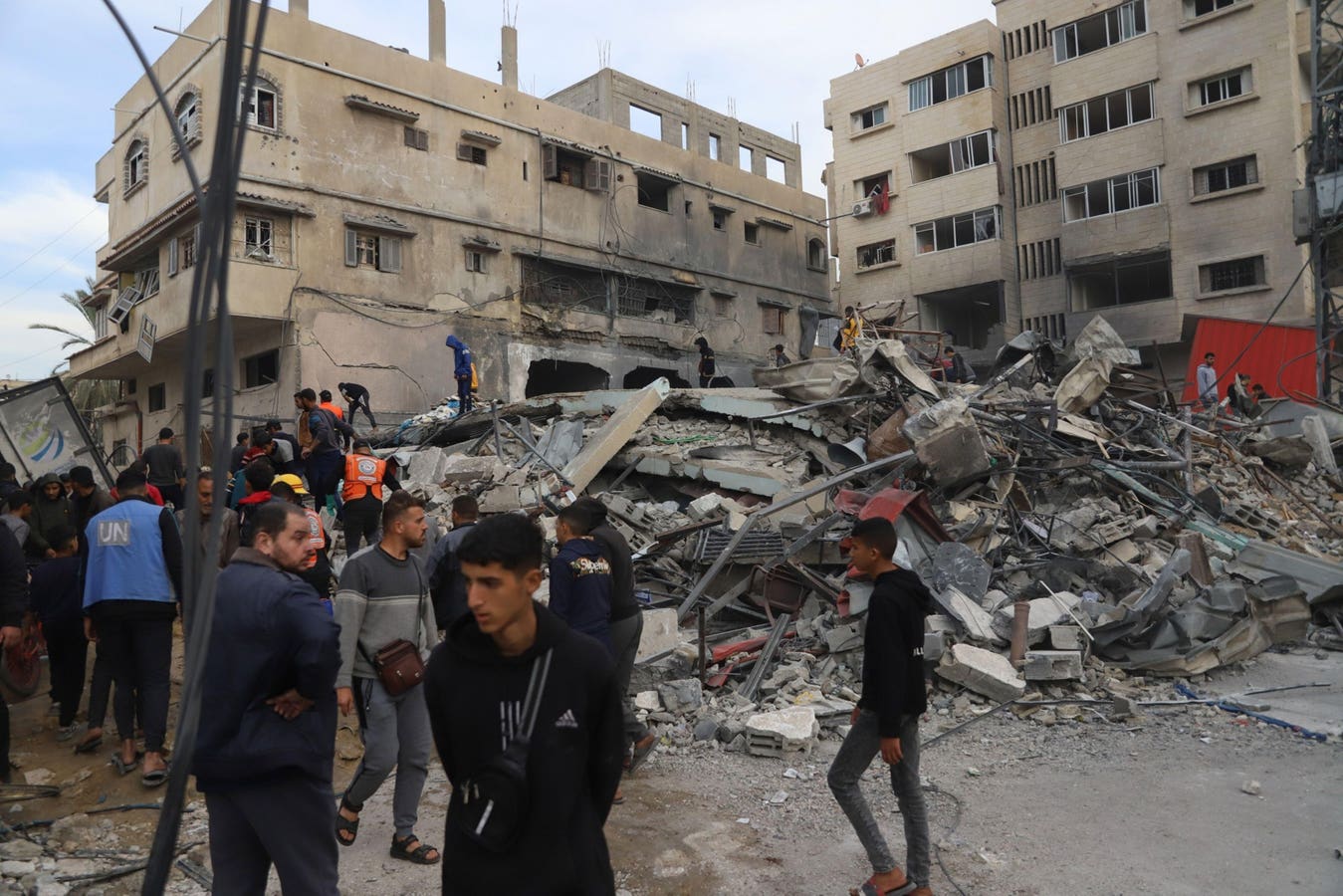Reports surfaced today that Israel has bombed places where it told civilians to flee in Gaza. If these reports are true, Israel is not abiding by the law of war—or the standards of wartime conduct which it set for itself. Israel has published a position paper on how it applies the law of war in the current war in Gaza. The paper defends Israel against common criticisms of its adherence to the law of war. It also provides a yardstick by which Israel must now measure itself.
Both Israel and Hamas are bound by the law of war, although few seriously believe that Hamas is following it. Besides this obvious asymmetry, the Israel-Hamas conflict strains the utility of fundamental concepts of the law of war. For example, a different set of rules applies to international armed conflicts, or conflicts between states; and non-international armed conflicts, conflicts between states and non-state armed groups. The conflict between Israel and Hamas does not fit this mold. Only 139 of 193 UN members recognize Palestine as a state via bilateral diplomatic relations, and the U.S. and Israel are not among them. The State of Palestine has non-member observer status at the United Nations. The officially recognized government of Palestine is the Palestinian Authority, not Hamas, making the statehood status of Hamas-run Gaza even less clear.
Without addressing the issue of Palestinian statehood, the position paper clarifies that Israel applies both the laws of international and non-international armed conflict to the war. The paper stresses that Israel will uphold its commitments to the 1947 Geneva Conventions and other applicable treaties regardless of Hamas’s violations of the law on October 7 or since. The paper underlines that Israel accepts the more stringent restrictions of international armed conflict in many cases. The paper stresses that Israel’s commitment to the law of war is part of what separates it from terrorist organizations like Hamas.
The paper also refutes contentions that Israel does not subscribe to key provisions of the law of war. Israel, like the U.S., did not sign Additional Protocol 1 of the Geneva Conventions, which covers protection of civilians in war and has been signed by most states. Many of the Protocol’s rules, however, are considered customary international law by which even non-signatory nations are bound. Some critics argue that because Israel has not signed the Protocol, it does not apply to the conflict, insinuating that Israel has not agreed to key protections for civilians. The position paper clarifies that Israel accepts the core principles of “proportionality” and “feasible precautions” to mitigate civilian harm as defined in Additional Protocol 1. In doing so, Israel is affirming its commitment to commonly accepted views of the law of war.
The paper categorically rejects the accusation that Israel is engaging in “collective punishment” against Palestinians. It stresses that Israel’s attacks are directed only at military objectives. In Gaza, distinguishing combatants from civilians is a challenging task. Hamas hides among the general population and within schools and hospitals, and Hamas fighters may not follow the legal requirements to be identified as combatants. Targets that appear civilian may become valid military targets because of their nature, purpose, or use. The paper cautions others against concluding that an attack is unlawful solely because it appears that civilians or civilian property have been targeted—things may not be what they seem.
Human Rights Watch and others have decried the IDF’s October 12 warning to 1.1 million civilians to evacuate northern Gaza within 24 hours, describing it as an unlawful order. The paper defends the warning as a feasible precaution to mitigate civilian harm. As further evidence of this intent, the paper notes that the IDF published and facilitated evacuation routes for civilians to flee to south Gaza, where more aid is available. The IDF also delayed its operations beyond 24 hours to allow more time for evacuation. The paper underscores that Hamas attempted to thwart the IDF’s precautions, threatening and forcibly preventing civilians from leaving. Despite this, Israel considered the presence of Gazans who remained in its proportionality calculations before attacks.
The position paper serves as an official caution to those seeking revenge after Hamas’s heinous massacre on October 7. When influencers call for vengeance, and politicians like the Israeli Minister of Heritage claim that there are no non-combatants in Gaza, the IDF can point to the paper as an official statement that it seeks to follow the law of war.
However, Israel’s statement of morality will be meaningless if it does not hold itself to its own standards. It would also be a strategic mistake. The IDF’s initial reaction to reports that it bombed areas where it told civilians to flee was that it would investigate the allegations after the war ended. Israel must launch an immediate investigation to help bolster its international support and restore the will to fight among a military facing constant accusations of immorality and brutality. In the future, civilians will not listen to the IDF’s calls to move to safe zones if they do not believe they are safe. They will trust Hamas instead, complicating future missions and leading to even greater civilian casualties. Investigating and ensuring that these wrongs do not occur again will support the IDF’s efforts in rooting out Hamas and protect civilians trapped in Gaza. The position paper will only be evidence of Israel’s hypocrisy if its actions do not match its words.
Read the full article here





